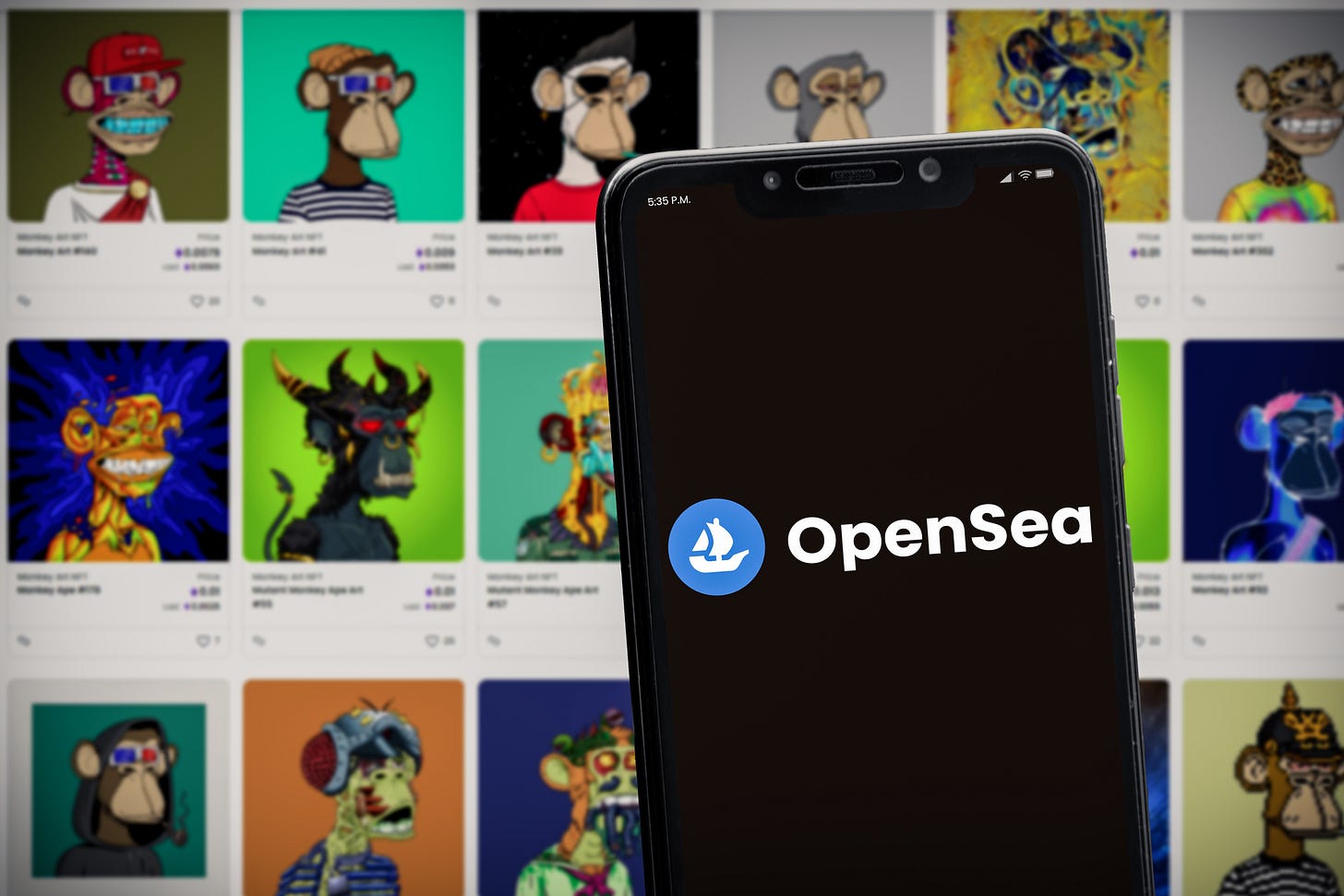Fraud on OpenSea & Fake Trump Coins 🏴☠️
OpenSea's free NFT minting tool is mostly fakes, and the strange tale of collectible Trump coins
Cultured is a newsletter by Otis that gets readers up to speed on the most interesting things going on at the intersection of finance, art, collectibles, NFTs, and more.
Love Cultured? Spread the word and share this newsletter with a friend!
🗞 STORIES OF THE DAY
OpenSea’s free NFT minting tool is mostly used for fraud and spam
OpenSea revealed that 80% of the NFTs made on its free minting tool are plagiarized versions of real NFTs, fake projects, or outright spam.
OpenSea’s “lazy minting” approach is popular among upstart NFT creators because it lets users skip out on gas fees by minting directly on the platform. Buyers end up paying the fee when they buy a work in the collection.
The disclosure was buried in OpenSea’s controversial announcement that it would start limiting the number of NFTs a user could make using the free service. Backlash led OpenSea to reverse its decision.
Our Take: OpenSea is facing a common problem for platforms that scale rapidly. If it goes unchecked, it could be its demise.
Fraud and other kinds of spam were rampant in the early days of almost every social media app. It took Facebook years to expand its moderation efforts to encompass its rapidly growing user base. Platforms that crack down risk the kind of backlash that OpenSea just faced. But platforms that take a laissez faire approach risk collapsing as users lose trust and leave.
» Share this story on Twitter.
The Bizarre World of Trump Collectible Coins
The right-wing internet is awash in ads for gold-plated novelty coins featuring the face of former president Donald Trump. While Trump loves to sell memorabilia, these coins aren’t connected to him — in fact, they’re totally anonymous.
The coins are hawked on fake celebrity accounts and in ads next to misinformation. Affiliate marketers often claim that the coins are a kind of cryptocurrency (they aren’t, obviously).
The New York Times tracked the coins and found out that they were made by a Romanian marketing firm known for misleading marketing tactics. And the coins? They’re painted gold, not gold-plated — in other words, they’re worth nothing.
Our Take: Fraud is a major discussion in the world of NFTs, but it’s not unique to digital collecting.
When fraud makes headlines in the collecting world, it’s usually in relation to digital collectibles like NFTs (see above) or high-value deals gone wrong. However, some of the oldest collectible categories, like coins, also face a similar problem. It's a good reminder that, regardless of the size of the transaction, provenance is crucial in collecting.
» Share this story on Twitter.
✨ AROUND THE INTERNET
A rare Tom Brady Topps card from the year he won his first Super Bowl is up for auction. There are only 20 in existence, and this one has top marks from PSA, meaning it could fetch a seven-digit sum.
Want to experience Virgil Abloh’s work? A new AI exhibit features more than 20,000 photos and videos created by Abloh to show off his work.
Zion Williamson is barely playing — that’s bad news for trading card collectors. The player’s cards, which were at an all-time high in December 2020, are now trading at a fraction of the price.
Want to direct a major brand’s move into the metaverse? Well Nike has the job for you.
Three collectors faced off last week for the chance to own a rare Botticelli. It ended up going for $45.5 million, just shy of its pre-auction estimate.
MSCHF wants to make sure those lawyers’ retainers are being put to use. The brand dropped a new collection featuring major brand logos, making it the trolliest drop of the year.
Ever wondered what an IRL Pokémon battle would look like? Well now you can find out, thanks to some dedicated fans who staged a Pokémon battle using drones.





